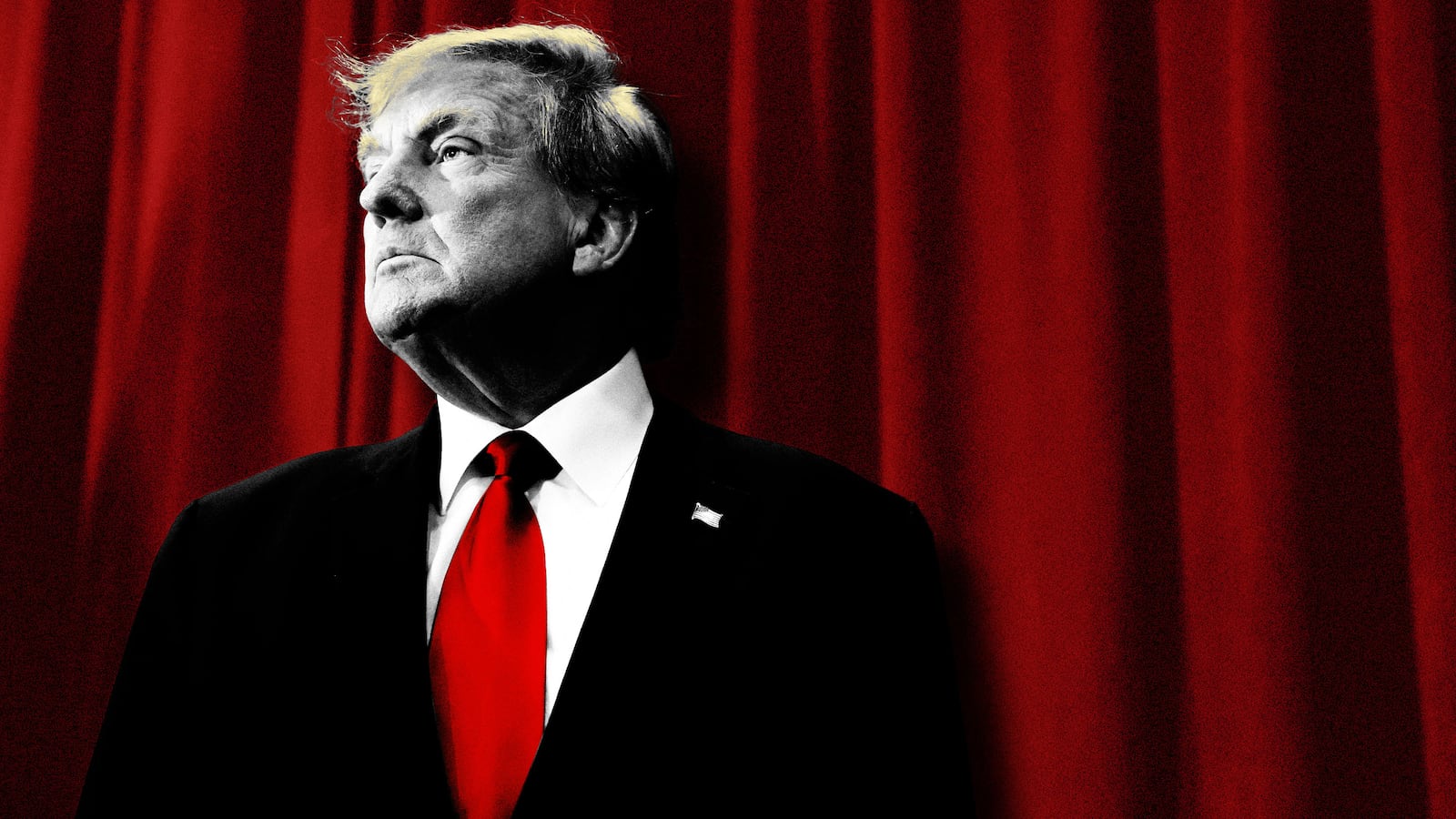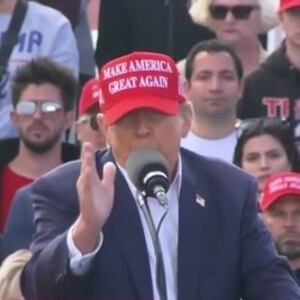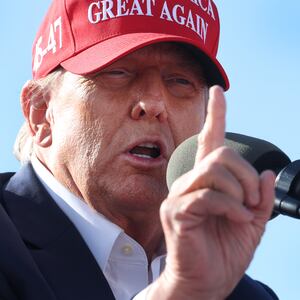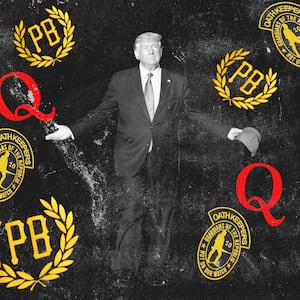The eternal victim of our time, Donald Trump, wants you to know that he is a deeply misunderstood man. The former president, who incited the violent attack on the U.S. Capitol, is offended that anyone would think that he was talking about violence when he used the word “bloodbath.”
On social media Monday morning, Trump lashed out at the “Fake News Media, and their Democrat Partners in the destruction of our Nation,” for distorting what he said at a rally Saturday in Vandalia, Ohio.
When he warned that there would be “bloodbath” if he wasn’t elected, Trump insisted, “he was simply referring to imports allowed by Crooked Joe Biden, which are killing the automobile industry.”
The former president added: “With the Electric Car Mandate being pushed by Biden, there soon won’t be any cars made in the USA—UNLESS I’M ELECTED PRESIDENT, IN WHICH CASE AUTO MANUFACTURING WILL THRIVE LIKE NEVER BEFORE!!! MAGA2024.”
On cue, Trump’s political allies and media confederates have crawled to his defense—waxing indignant and over what they called “the bloodbath hoax” perpetrated by a malicious media, who took the former president out of context. Even some anti-Trump pearl-clutchers worried that he was being treated unfairly.
So, because we are caught in this doom loop of stupidity, we are again asked to parse Trump’s notorious verbal diarrhea. Trump’s speeches are marked by their digressive incoherence—rambling streams of consciousness that often go off on bizarre tangents.
So what did he actually say on Saturday?
Trump did, indeed, begin by talking about the auto industry and the massive tariffs he wants to impose on imported cars.
“If you’re listening, President Xi—and you and I are friends—but he understands the way I deal. Those big monster car manufacturing plants that you’re building in Mexico right now… you’re going to not hire Americans and you’re going to sell the cars to us, no. We’re going to put a 100 percent tariff on every single car that comes across the line, and you’re not going to be able to sell those cars if I get elected.”
Then, as usual, he switched back to talking about himself and what would happen if he doesn’t get elected in November.
“Now if I don’t get elected, it’s going to be a bloodbath for the whole—that’s gonna be the least of it—it’s going to be a bloodbath for the country. That will be the least of it. But they’re not going to sell those cars.” (Italics added)
So, yes, he was talking about an impending bloodbath for the auto industry—“that’s gonna be the least of it”—but also a bloodbath for “the whole… country.”
As Trump’s various lackeys note, context matters. But, for Trump, the context for his “bloodbath” comment is both the specific context of Saturday’s rally, and the larger context of his entire campaign.
Trump began the rally on Saturday by saluting the “unbelievable patriots” who stormed the Capitol on Jan. 6, 2021. After joining a choir of jailed insurrectionists in a rendition of the National Anthem, Trump’s first words were: “Thank you very much, and you see the spirit from the hostages. And that's what they are—hostages. They’ve been treated terribly.” Once again, he suggested he would pardon them if he returned to the White House.
Presumably, Trump’s “hostages” include rioters who violently attacked police officers—convicted felons who used bear spray on defenders and beat cops with flag poles, batons, and stolen shields. The Department of Justice later estimated around 1,000 instances of assault on law enforcement officers trying to protect the Capitol that day.
Estimates of the death toll from that day vary, but a bipartisan Senate panel later found that at least seven people had died as a result of the Jan. 6 attack.
It was, in other words, a bloodbath. And that seems relevant to a discussion of what Trump meant—and the message he is trying to send.
“When the former president, who has already incited violence among his followers, says that there’s going to be a bloodbath after the election, if he does not win,” The New Yorker’s Susan Glasser noted, “he is telling us what he is going to do.”
Well, exactly. And so it has been since he came down the escalator in 2015.
He’s encouraged rally-goers to rough up protestors; offered to pay the legal fees of supporters who “knock the heck out of” hecklers; and, most famously, refused to unequivocally condemn the white supremacist violence in Charlottesville in 2017.
Since then, Trump has escalated the rhetoric and stakes as he promises “I am your retribution.”
Trump’s rhetoric of violence has become a central—maybe even the defining—feature of his campaign. He refers to immigrants as “vermin,” his critics as traitors, and is excited by the idea of shooting shoplifters. He mocked the hammer attack on Nancy Pelosi’s husband and suggested the death penalty for General Mark Milley.
Increasingly, he paints 2024 in apocalyptic terms. In January, he warned that the criminal and civil cases against him could lead to “big, big trouble” and “bedlam in this country.” When a reporter asked him whether he would rule out acts of violence by his supporters, he walked away. Trump knew the message he was sending.
On Saturday, again, he knew exactly what he was saying.









